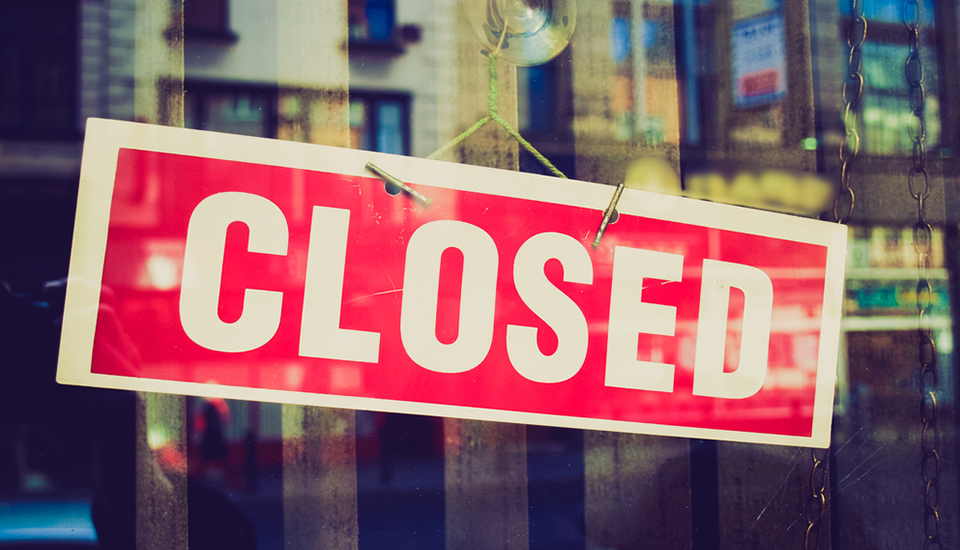Jan. 19, 2018.
Amidst the hubbub of the signing of the new tax plan, Congress has been negotiating its budget for weeks. Many deadlines and decisions for the upcoming fiscal year were pushed back to 2018. As a result, we’re facing the threat of a government shutdown with a deadline of midnight, January 19, 2018, if a budget isn’t passed in time.
The last government shutdown in our century took place in 2013, following a previous government shutdown from 1995 to 1996. Government shutdowns are rare. But they create ripples when they happen.
Currently, Congress members are trying to make a deal. Republicans pushing to increase defense spending and Democrats pushing for equal funds for domestic spending find themselves at an impasse. All in all, 12 appropriation bills for spending for government agencies need to be signed to come to a compromise and prevent a shutdown.
What happens in a government shutdown?
A government shutdown doesn’t come with a deadline. It may take a weekend or longer for congressional leaders from both parties to reach a funding agreement if a shutdown occurs.
Here’s the trickle-down effect of what we can expect if these events take place:
- Top-level government staff members will continue working. Most federal employees will not. This includes IRS and FHA employees, who will be put on furlough. An estimated 850,000 employees were furloughed each day of the government shutdown in 2013.
- Social Security, Medicare, and food stamp benefits will still be provided. It’s likely that VA and unemployment benefits, farm subsidies, and tax refunds will be delayed.
- A shutdown that lasts longer than two weeks may affect the economy because it’s so costly. Evidenced by the $4.25 billion price tag for the last three government shutdowns, a new shutdown could cost the U.S. economy $6.5 million per week.
Let’s stay in touch. Follow us to get mortgage tips, industry news, and home decor ideas on your Instagram feed.
What happens to homeowners and buyers in a government shutdown?
To see how homeowners and homebuyers could be affected in a government shutdown, we can once again look at our recent history:
1. Mortgage closing time could slow.
In the 16-day government shutdown of 2013, mortgage approvals stalled as IRS and Social Security employees were furloughed. This led to 17 percent of closings being delayed. “In 2013, the mortgage industry experienced a 16-day long government shutdown that had a large ripple effect on the home loan origination process,” Marcie Hines at Cornerstone Home Lending, NMLS #233626, says. “We had appraisals for government loans and IRS tax transcripts that could not be ordered.”
Without one or both of these items, Hines says her team couldn’t get mortgage applicants fully approved. When the government did reopen, Hines and her loan officers were met with a backlog of work. Many mortgage applicants experienced delays in closings.
But for today’s buyers, there’s probably no reason to panic. “We see government agencies periodically go through furloughs,” Hines says. “In the past, it caused some delays. Some closings needed to be extended.” In today’s current climate, however, Hines says investors have given multiple options to satisfy lending conditions. This helps mortgage applications stay on course.
2. FHA and VA loans could be delayed.
As mentioned above, FHA and VA employees on furlough might affect loan processing. Hines explains that, typically, when government agencies like the FHA, VA, and IRS experience furloughs, the process remains intact. But it moves a tad slower than normal. To avoid any unnecessary delays related to government furloughs, Hines says, “It’s a best practice to work with a proactive loan officer and mortgage company.”
Keep your loan officer in your back pocket. Download our free app and get 24/7 support until closing day.
Kelly Zitlow, Vice President at Cornerstone, NMLS #164330, says she saw little, if any, impact of the 2013 government shutdown among her team’s borrowers. “We’ve been in this business for enough years to have seen this happen several times. Other than a minor delay in getting a case assignment or other government document, we have not seen any significant impact to our business or to our clients.” In the face of a potential government shutdown in 2018, Zitlow says, “I’m not worried.”
3. Mortgage rates could drop.
Mortgage rates are linked to the health of our economy. If the economy slumps, even ever so slightly, related to a setback like a government shutdown, lower mortgage rates may follow. The housing market is healthy right now. But only time will tell how a government shutdown and a potential shift in mortgage rates could affect the housing market and economy.
During the 2013 shutdown, for example, the HUD projected that the housing market would weaken because of a decline in sales. On the other hand, lower mortgage rates related to a shutdown could allow homebuyers to purchase more house at an affordable price. Homeowners could also refinance at a lower rate.*
How do you know when you’re ready to refinance? Contact a local loan officer if you’re looking for a lower interest rate, ready to change loan terms, or need cash for home renovation.
If you have questions about how the government shutdown could affect you as a homeowner or homebuyer, talk to someone you can trust. Friendly, local Cornerstone loan officers are available in 38 states (and the District of Columbia) — and we’re only a call or an email away.
*Refinancing could make a significant difference in the amount you pay each month. But there are other costs you should consider. Plus, your finance charges may be higher over the life of the loan.
For educational purposes only. Please contact a qualified professional for specific guidance.
Sources are deemed reliable but not guaranteed.

